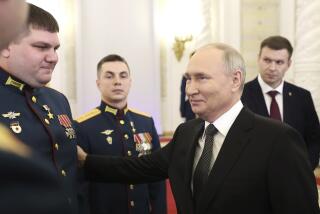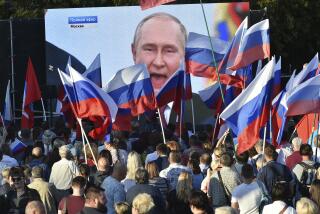Will the Honeymoon Last Past June? : Russian election could damage ties to United States
- Share via
Fresh from talks with Yevgeny M. Primakov, his new Russian counterpart, Secretary of State Warren Christopher has concluded that Washington and Moscow can still find more areas of potential agreement than areas where they feel compelled to disagree. For now, that assessment may be accurate. But given the unmistakable new tone in Russian foreign policy and the deep uncertainties raised by the scheduled June 16 Russian presidential election, it’s also one that could soon undergo dramatic revision.
For all the pragmatism Primakov is said to have shown in his weekend talks with Christopher in Helsinki, he clearly wasn’t chosen because President Boris Yeltsin or the newly elected, more hard-line parliament wanted another accommodating liberal as foreign minister. Nationalists increasingly complain about what they see as the humiliating subordination of Russia’s national interests to its pursuit of closer economic and political ties with the West. Primakov, who came to prominence as part of the Soviet Union’s ruling elite, can be counted on to strongly assert those interests.
Russia is determined to pursue a visibly independent foreign policy and to try to reestablish the influence Moscow once enjoyed as the capital of an empire. It is looking first at certain areas of the “near abroad,” the states of the former Soviet Union, and it has moved at the same time to establish a strong presence in both Iran and Iraq, neither of which wishes the United States or its friends in the Persian Gulf well. In Europe, Russia’s chief interest for now seems to be to prevent NATO’s possible expansion eastward, to bring in several countries of the defunct Moscow-dominated Warsaw Pact. Points of potential friction with Washington are obvious.
Those points are certain to multiply if the June election returns the Communists to power or, even worse from the international perspective, brings an ultranationalist of doubtful rationality like Vladimir Zhirinovsky to the presidency. In that event it’s a safe bet that Washington will soon find precious few areas where its interests and Moscow’s coincide.
More to Read
Sign up for Essential California
The most important California stories and recommendations in your inbox every morning.
You may occasionally receive promotional content from the Los Angeles Times.












